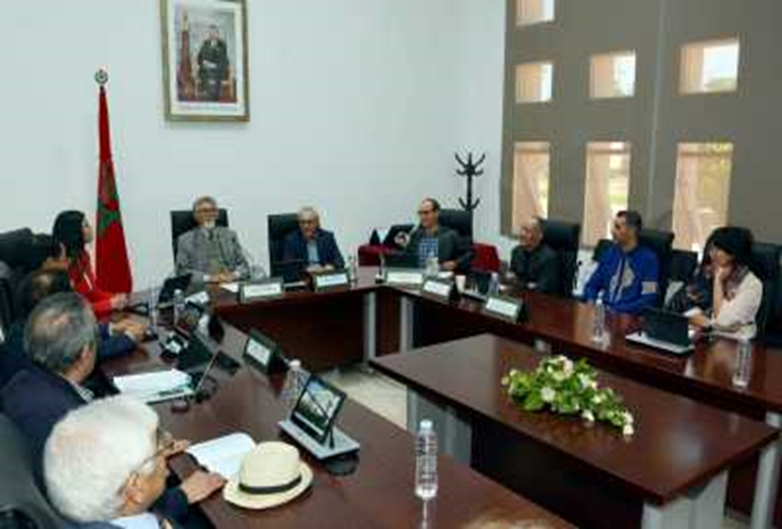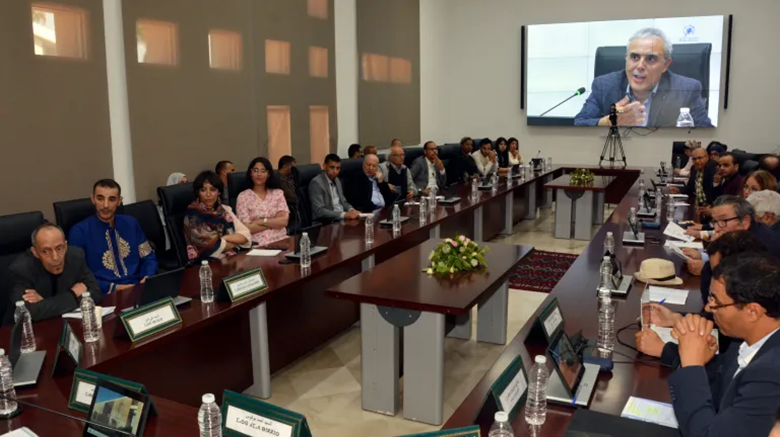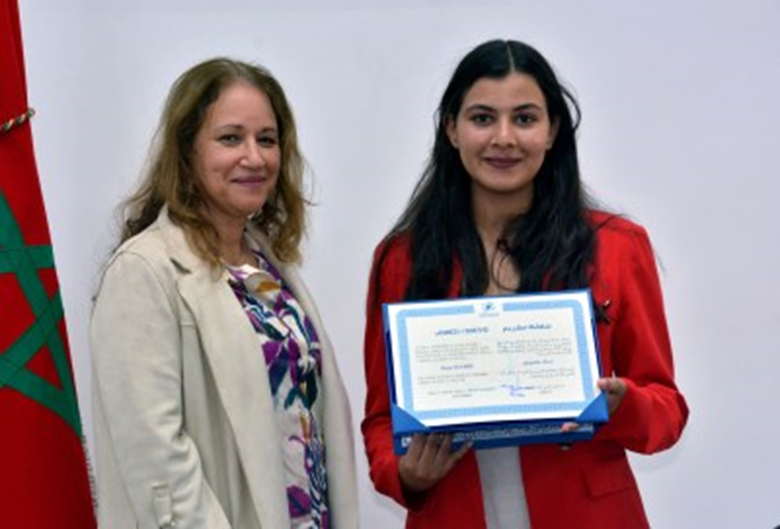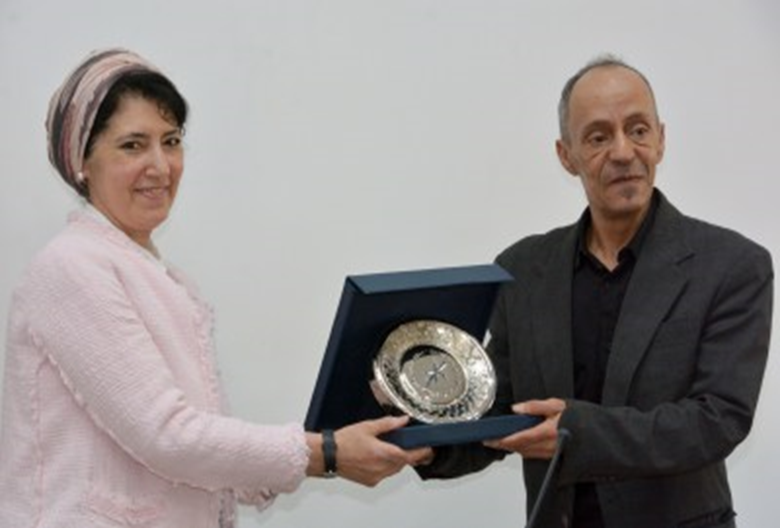In celebration of the International Day for Cultural Diversity … The Royal Institute of Amazigh Culture organizes an interactive meeting on Amazigh artistic production

The Royal Institute of Amazigh Culture hosted an interactive meeting to celebrate the International Day for Cultural Diversity for Dialogue and Development, on Thursday, May 25, 2023.
This meeting falls within the framework of the radioactive activities of the Center for Anthropological and Sociological Studies of the Royal Institute of Amazigh Culture, which hosted a group of creators in the field of Amazigh song.
This meeting also aims, within the framework of the Center for Anthropological and Sociological Studies, to introduce some manifestations of industries and creative forms in the Amazigh fields. This interest is due to the fundamental importance of the issue of production in the development of creative industries and in the processes of communication and cultural transmission.

After the opening speech of Professor Ahmed Boukous, Dean of the Royal Institute of Amazigh Culture, the program included the interventions of the professors: Professor Hammou Belghazi on the art of Ahidous as an ancient group dance, in addition to his testimony in the right of the distinguished artist, Sana Jedoubi, Maester in the art of Ahidous, whose artistic experience translates the dynamism of this art Collective and highlighting the roles of women and men in the organization of artistic performances and modes of transmission.
And the intervention of Mr. Mubarak and Naim about Amark - between originality and modernity, and he also presented a testimony in the right of the distinguished artist Ali Faeq, who mixes in his performance and artistic practice between restoring the eternal songs in the art of “Tirwesa” and modernizing music, and thinking about new formulas to introduce Amazigh music and transfer it to the rising generations, Through the creation of an appropriate space, while the intervention of Professor Muhammad Opinal dealt with the topic of “I sing between creativity and challenges,” in addition to his speech as a testimony against the distinguished artist Nasreddine Al-Wazizi. The musician, who co-founded the Afraf group and contributed to the renewal of the country song and the innovation of new methods of production and promotion through the creation of a “café-studio.”

Each artist also contributed during this open interactive meeting with the Center's researchers with his distinguished participation, in addition to presenting some results of research and investigations on the transformation of Amazigh musical expressions, where each artist presented his creative experiences and personal path.
The reality of production and the status of artists in the field of Amazigh musical and lyrical creativity and how to deal with new contexts were monitored by presenting some paths and experiences that are characterized by creating new forms to overcome the fragile situation that characterizes the field of production and product promotion. This rich interactive meeting dealt with the artistic scene and new attempts To create appropriate spaces to introduce the richness of the musical repertoire and share it with the rising generations, and to create musical styles inspired by the lyrical heritage and adapt them to contemporary trends.

The questions framing this meeting also revolved around the topics of artistic upbringing and its relationship to the acquisition of the principles of art and its behavioral and performance foundations, the formal formulas of this process, the methods of acquiring and communicating techniques and values to the younger generations, and how to adapt to the profound changes that affect the productive structure of these arts and the social and technological means used to prepare Products and their promotion, and to what extent did the Amazigh artist benefit from institutionalization and demarcation.
This interactive meeting, which was presided over by Professor Al-Khatir Abu Al-Qasim (Afolai), concluded with the presentation of a shield of honor to each artist and a certificate of participation in appreciation of their contribution to the appreciation and renewal of the Amazigh artistic heritage.

It is noteworthy that the International Day for Cultural Diversity for Dialogue and Development, which UNESCO celebrates on May 21 of each year, is not only to highlight the richness of the world's cultures, but also to highlight the essential role of dialogue between cultures in achieving peace and sustainable development. Which is an occasion to promote culture and highlight the importance of its diversity as an effective factor for achieving and integrating positive change in the global community. This day also represents an opportunity to celebrate the multiple forms of culture, including tangible and intangible cultural heritage, creative industries, and various forms of cultural expression, in addition to reflecting on how to involve this rich diversity in strengthening the bonds of dialogue and mutual understanding, and ways to transfer sustainable social, environmental and economic development.
Etab Maryam (trainee)
Source : websites

